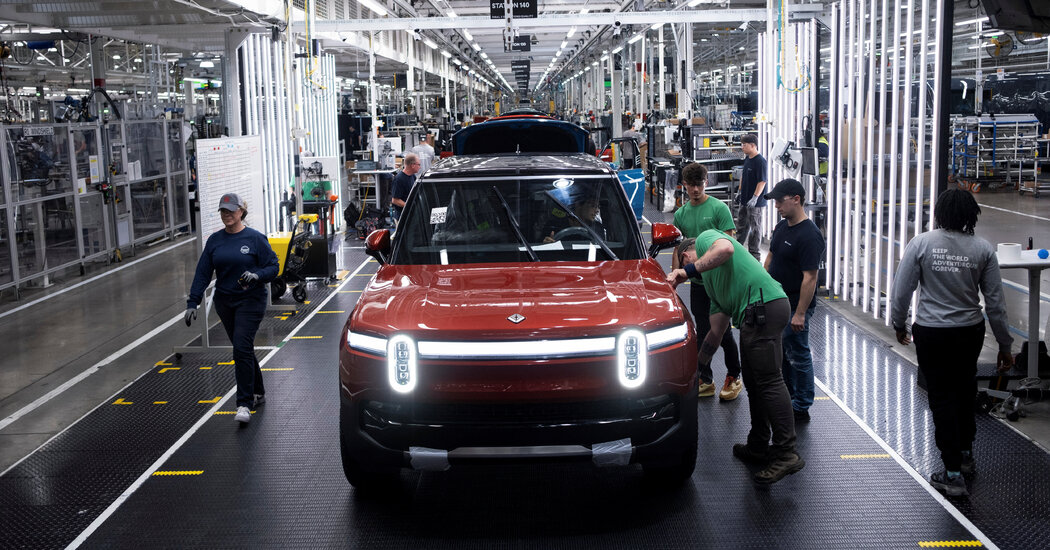Volkswagen, the German automaker, said on Tuesday that it would invest up to $5 billion in Rivian, a maker of electric trucks that has struggled to turn a profit, and that the companies would cooperate on software for electric vehicles.
The deal creates an unusual alliance between the world’s second-largest carmaker and an electric vehicle start-up that has struggled to live up to investors’ expectations that it would achieve the kind of success that made Tesla the world’s most valuable automaker.
If successful, the partnership would address weaknesses at both companies. It would provide Volkswagen with the software expertise that auto analysts say it sorely lacks. And Rivian, addition to cash, would benefit from the manufacturing expertise of an automaker that cranks out nearly 10 million vehicles a year from factories around the world.
Volkswagen said it would initially invest $1 billion in Rivian, and over time increase that to as much as $5 billion. The infusion represents a big vote of confidence in Rivian, which loses tens of thousands of dollars on each vehicle it sells.
Rivian’s pickups and sport utility vehicles have received glowing reviews in the automotive press, but the company has struggled to ramp up manufacturing at its factory in Normal, Ill.
Rivian’s stock jumped 35 percent in extended trading on Tuesday after the deal was announced.
The electric vehicle market has been divided between companies like Tesla and Rivian, which make only battery-powered cars, and established carmakers like Volkswagen, General Motors and Toyota, which have often struggled to master the new technology.
Except for Tesla, none of newer U.S. carmakers specializing in electric vehicles have won significant market share. Some, like Fisker and Lordstown Motors, have ceased production and filed for bankruptcy protection.
Auto analysts have long considered Rivian among the electric vehicle start-ups most likely to survive, in part because it has raised billions of dollars in investment. Amazon is one of its largest shareholders and the main customer for the company’s delivery vans.
Ford Motor was for a time a big shareholder in Rivian, and the two companies once said they would build S.U.V.s together. But that plan never came to fruition, and Ford sold most of its Rivian shares.
Rivian has recently been trying to cut costs — in March it indefinitely delayed plans to build a $5 billion factory near Atlanta — in an effort to survive long enough to bring out an S.U.V. priced around $45,000.
The cheapest vehicle the company currently sells, the R1T pickup, starts around $70,000, a price that has limited its sales to affluent early adopters. Its S.U.V., the R1S, starts at $75,000. Even at those prices, Rivian lost $39,000 for every vehicle it sold in the first three months of the year.
Vehicles using the software developed by the new joint venture will go on sale during the second half of the decade, Volkswagen said. The two companies will continue to market their vehicles separately.
This is a developing story. Check back for updates.

